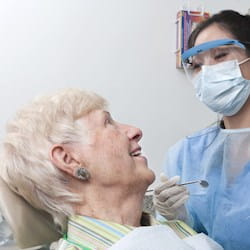THE Care Quality Commission has confirmed that remote orthodontic providers offering ‘direct-to-consumer’ treatments are required to be CQC-registered in order to practise lawfully.
A CQC statement affirms: “We consider orthodontic treatments provided to patients following an intra oral scan or when a patient has taken impressions themselves to be regulated activity. This is in the same way that treatment planning and diagnosis associated with aligners is also regulated activity.
“Where a service is carrying on what the law describes as a regulated activity, that provider has to register with CQC. This enables us to work together to understand how the service operates and to protect people who use the service through our regulation. To register with us, providers must assure us that they are able to provide safe and effective care in line with relevant legislation and guidance.”
The CQC further states: "It is an offence under Section 10 of the Health and Social Care Act to provide regulated activities without being registered with CQC. We can use our regulatory powers to prosecute such offences."
The British Dental Association has welcomed the statement. BDA Chair Eddie Crouch said: "With remote orthodontics we need real regulation, not just empty warnings to properly protect patients.
"Mandatory CQC registration and inspection is a much-needed first step. A health watchdog needs teeth, and a willingness to prosecute those who fail to register is sending the right signal to unscrupulous operators."
This page was correct at the time of publication. Any guidance is intended as general guidance for members only. If you are a member and need specific advice relating to your own circumstances, please contact one of our advisers.
Save this article
Save this article to a list of favourite articles which members can access in their account.
Save to library
